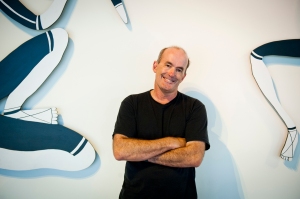Ove is currently Professor of Marine Studies at The University of Queensland where his research group focuses on the physiological ecology of coral reefs, especially under rapid ocean warming and acidification. In addition to research, Ove has played significant roles within the IPCC (coordinating lead author of Chapter 30, “Open Oceans” in AR5, as well as coordinating lead author of Chapter 3 “Impacts” in SR1.5). He has also played leadership roles such as Director of the Centre for Marine Studies (2000-2009), and Director of the Global Change Institute (2010-2019), Deputy Director of the ARC Centre of Excellence for Coral Reef Studies, Senior Scientist for the Catlin Seaview Survey, and Chair of the Blue Ribbon Panel for the Global Partnership for Oceans at the World Bank among other projects.
Ove Hoegh-Guldberg’s published works include over 400 refereed publications and book chapters. He is one of the most cited authors within the peer-reviewed literature on climate change and its impacts on natural ecosystems. These details and more can be found at his laboratory web page (go here for his CV).
Ove Hoegh-Guldberg has held academic positions at UCLA, Stanford University (visiting Professor for 8 years), University of Sydney and University of Queensland, and am a member of the International Scientific Advisory Committee of the Great Barrier Reef Foundation. In 1999. he was awarded the Eureka Prize for scientific research, was QLD Smart State Premier’s Fellow (2008-2013),Reviewing Editor at Science Magazine (2003-2009), and is recently an ARC Laureate Fellow (2013-2019). In 2013, Ove Hoegh-Guldberg was elected to Australian Academy of Science.
In addition, Ove has been adviser to numerous organisations including the Royal Society (London), Greenpeace, World Fund for Nature, Rio Tinto Aluminium, the Great Barrier Reef Foundation,Great Barrier Reef Marine Park Authority, The World Bank, UNESCO Intergovernmental Oceanographic Commission, NOAA and the Australian Government, primarily on the issue of marine ecosystems and the urgency of changing tack on human driven climate change. He has been recognised as a Highly Cited Researcher in 2001, 2014, 2018 and 2019 (top 1% of environmental science) and was listed among the 100 most influential people in Climate Policy globally (List available at Apolitical: details here).
Ove is an avid diver and photographer. In 2009 and again in 2017, he was profiled by Australian Story (View both documentaries).

- Review the mesocosm experiment at www.attenboroughsreef.com.
- Recent interview of Ove by Jonica Newby for ABC Science Show (May 2020).
- Recent interview by the Guardian (June 2020)
